The Defence Secretary has announced what he called the “deepest reforms in UK Defence for 50 years”, pledging to end what he described as a culture “obsessed with process” and refocus the system on outcomes, accountability, and operational readiness.
In a written statement to Parliament on Tuesday, John Healey MP said the sweeping reforms would “fundamentally change the way defence operates”, claiming the changes were necessary to match the largest sustained increase in UK defence spending since the Cold War.
“Alongside this significant investment must come serious reform,” Healey said. “We must speed up our decision making, focus on outcomes, secure faster delivery and achieve the best value for money for our troops and taxpayers.”
The reforms will see the creation of a new “Quad” of top defence leaders — the Permanent Secretary, the Chief of the Defence Staff (CDS), the National Armaments Director (NAD), and the Chief of Defence Nuclear — with each holding new budgetary powers and direct accountability.
The Chief of the Defence Staff will, for the first time, take command of the service chiefs through a newly established Military Strategic Headquarters (MSHQ), tasked with overseeing integrated force design across land, sea, air, cyber, and space.
Healey said the current system, which he described as “too often obsessed with process,” will be reshaped to focus on rapid delivery and measurable outcomes. “Information must flow quickly, individual accountabilities must be clear, and results must be demanded,” he added.
The reforms include the establishment of a National Armaments Director Group, intended to streamline acquisition and end what ministers have previously described as a “broken” procurement system. The NAD will oversee Defence Equipment and Support, the Defence Infrastructure Organisation, and other procurement arms, with a focus on driving domestic industrial growth as well as fighting capability.
The Government insists the overhaul will “cut waste, boost British growth and jobs, and fast-track the technologies of the future into the hands of our frontline forces”.
The reforms are to be implemented over the next two financial years, with 2025–26 described as a transitional period and the bulk of transformation scheduled for completion by 2026–27.
The restructuring of the Ministry of Defence will see its civil service branch slimmed down to a smaller, more agile Department of State, while the Defence Nuclear Enterprise will receive new ringfenced funding and clearer lines of accountability.
Healey pitched the reforms as a strategic realignment to prepare the UK for a more dangerous global environment. “Defence must change to make Britain secure at home and strong abroad,” he said, noting that the new command and acquisition structures are designed to support deterrence and warfighting readiness.


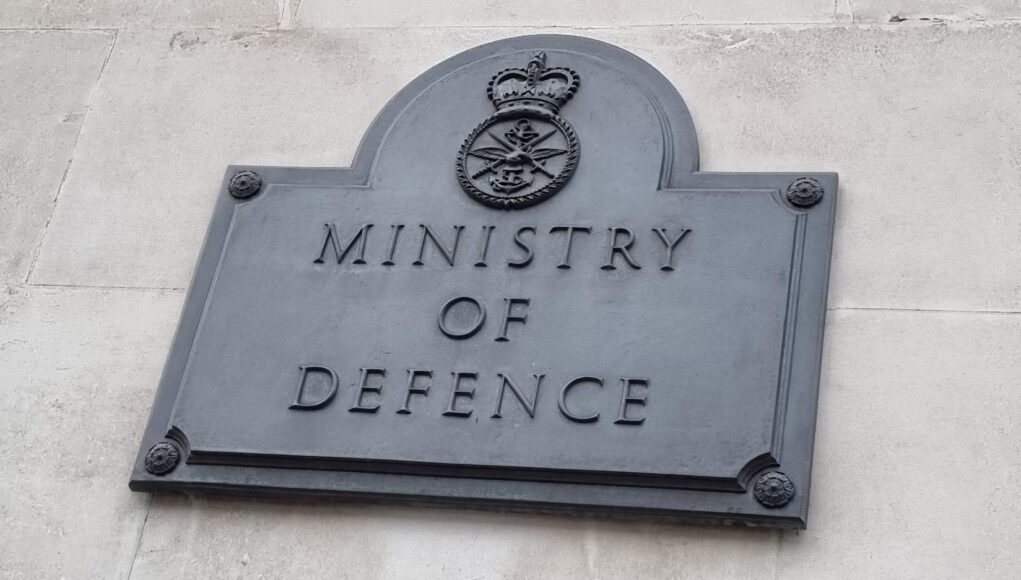

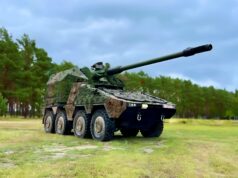
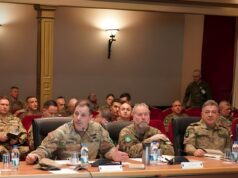
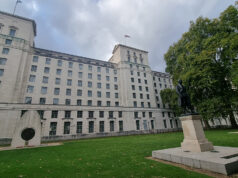
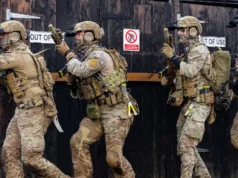
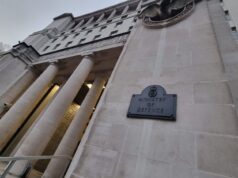
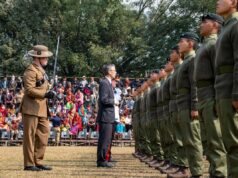

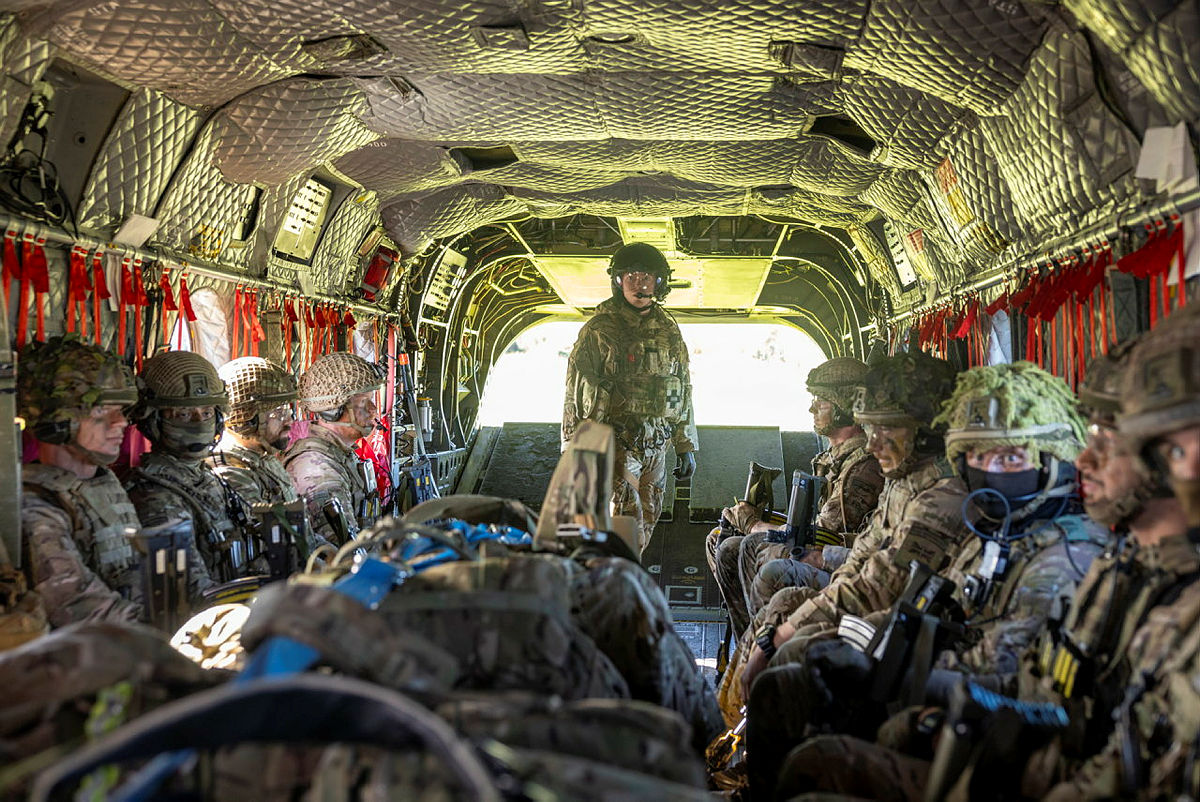


Sounds like a much needed reform.
JOIN US Making cash is very easy an simple now days. 2025 is the year of making money online . I am here to tell you guys that its so easy to make more than $15k every month by working online. I have joined this job 3 months ago and on my first day of working without having any experience of online jobs I made $524. This is just amazing. Join this now by
Follow instructions here………….. 𝐖𝐖𝐖.𝐇𝐈𝐆𝐇𝐏𝐑𝐎𝐅𝐈𝐓𝟏.𝐂𝐎𝐌
If it works it will be brilliant, let’s hope it does.
I am making a good salary from home $4580-$5240/week , which is amazing under a year ago I was jobless in a horrible economy. I thank God every day I was blessed with these instructions and now its my duty to pay it forward and share it with Everyone,
Here is I started_______ 𝐖𝐖𝐖.𝐖𝐎𝐑𝐊𝐒𝐓𝐀𝐑𝟏.𝐂𝐎𝐌
About bloody time! JBS.
The MSHQ has been on the cards/in conversation for several years as ‘The French Model’; a strategic HQ overseeing end-to-end output. We have been replicating C2 and confusing budgets and accountability across the Single Services, PJHQ, STRATCOM, MoD Main and the ancillaries (DE&S etc) for far too long. There are some minor but hugely significant changes here, making CDS ‘the boss’ vice a primus inter pares is so needed but will make the position even more politically significant than it is now.
I really hope the NAD group can get to grips with DE&S and DIO. Needs significant reform, workforce reductions are an obvious (albeit unpleasant) step forward and a greater operational mindset very much needed.
Nom, bit of a strange thing for the NAD to have oversight over DIO (and budgetary control over DIO, doubtless). It’s such a different area.
Graham, really agree, unsure if it is intended to reduce the number of TLBs through ‘on paper streamlining’. Regardless the two orgs need some significant redirection and real leadership. It will be interesting to see who heads up the team, whether we will bring in a retired 3*/4*; someone like Gordon Messenger or Nick Hine or an industry body.
We don’t want to hear any further vapid diatribes, just more troops and more Boxer, Ajax, extended CH2 service life, more F35, type 26 /31. The day I hear such news is when I begin to believe the politicians.
So around the top table, we will have 3 civvys and one guy in a uniform with military experience? Doesn’t sound like a great plan, the civvys in the MOD have been ruling the roost for years now and the results have been far from stellar, ditto the civvys in the DE&S. Not sure why we would want to elevate defence nuclear’ to the top table like this. Nuclear may take the biggest slice of the equipment pie, but in practical terms, it means 11 submarines – hardly a big core task requiring another head honcho, next to all the other military programmes involved in the defence tapestry. It would seem more appropriate that nuclear slots in as just one element of the new Armaments Director’s brief.
Wonder where this will leave the current Top Level Budget holders, who are all uniforms (Army, navy, Air force, joint helicopters ans defence nuclear? I fear that decision-making will pass from the military sphere to the civvy one, which would strike me as a backward step. More odd wheeled APCs instead of IFVs, odd-looking Rishi guns, etc.
I do think we tend to oversell ‘military experience’ as a requirement for decision makers; particularly at the strategic level. It is often the same argument that has been presented for years to keep warfighters at the top tiers of the military commands vice combat support or service support personnel. The civil service (and formally the Admiralty) has always found benefit from both military and civilian workforce. The civvies in DE&S for example are almost all supported by at least 1 military 2* as military advisors, as are the seniors in MOD… NASA isn’t run by astronauts and BA isn’t run by pilots.
Defence Nuclear deserves it place, not only is the deterrent ‘defence task #1’, above all else, the enterprise also holds the most risk and huge swathes of the budget. I also feel it is going to be a growing industry with much closer military/civil interaction. Sir Kier announced a ‘national endeavor’ (waffle waffle waffle) to increase out nuclear standing. So, this is somewhat inevitable.
I’m not entirely sure Joint Aviation is a TLB. I think there are 7: Navy, Army (including Joint Aviation), RAF, StratCom, Defence Nuclear, DIO & Head Office and Corporate Services
Interesting points NdG. Ref civilian/military balance, I looked at the make-up of these head office project teams a while back and would need to dig out my notes. What stood out was the sheer number of civil servants section heads running every aspect of defence, with the occasional one or two star in the mix somewhere. I recall that the chap running the air equipment side was… an admiral, which was rather disconcerting!
The impression I formed was of the civil service taking over everything, with an occasional uniformed officer there to explain to them what they were looking at. A bright young thing with an Oxford PPE may be a useful member of a team, but, having no experience of the wider military sphere, can only work in a narrow brief defined usually by another civvy further up the food chain. We have heard inter alia from former CGSs that they in fact had little control of or input into wider decision-making, such as service numbers, equipment development, etc. I get the impression that head office is a civil service-run thing, with service personnel marginalised as advisers. I’ll dig out my notes some time and put some flash on the bones.
The last MOD write-up I saw referred IIRC to their being 5 senior level TLBs. Certainly StratCom was one of them.
Cripes, very much agree with much of your commentary here and as a mid-seniority staff officer both in Town and deployed, I found nothing more frustrating than the ‘bright young things’ with limited real-life experience (frankly of anything, let alone the military!)
It would be interesting to see how the 2011 SDSR with the famous ‘more admirals than ships, more horses than tanks’ headlines impacting the senior workforce. I know the RN heavily reduced the number of Admirals for example. Agree that the balance isn’t quite right at the moment.
Regardless of how many budgets there are it is compelling to note that all Finance Directors are civilian across the TLBs.
Aren’t the TLBs going as part of this reform? In essence it’s centralised hence: “Quad” of top defence leaders — the Permanent Secretary, the Chief of the Defence Staff (CDS), the National Armaments Director (NAD), and the Chief of Defence Nuclear — with each holding new budgetary powers and direct accountability.”
Those 11 submarines are strategic assets. Everything else we have is tactical. In a real shooting war especially against China or Russia those 11 submarines would be our major offensive and defensive capability.
You only have to look at the gargantuan efforts that Australia as well as Russia, China and India are all making to get into nuclear submarines to understand their applications in a major war.
Jim, are the 7 SSNs strategic assets, really controlled by SofS rather than the Navy Department? You miss out that SF is strategic too.
Graham,
Just to be clear we only have 5 Astute Class in-service at the moment. Agamemnon is doing dockyard trials prior to starting her sea trials later this year I think, so possibly available to the fleet late 2026. Achilles is still in build and not likely to enter service / trials until late next year so she might not be available for fleet duties until 2027.
So overall eNATO has 10 SSN, 5 French and 5 British…
Cheers CR
Someone has to do the job. If the knowledge to do so isn’t held in the civil service, they’ll have to pay more money to the private sector to do the same thing. Worse, there won’t be anyone to who understands how to make sure the military gets what it needs, so requirements will iterate through misunderstandings until the requirements are close enough. This is what happened under Cameron. The extra cost has to come from somewhere. Last time it came from the military, shrinking the uniformed branch.
What’s needed is to change the processes, not to fire the people who have been told to execute them. Business Process Reenigineering is a profession that the Civil Service leadership think they can do themselves even though they never learned how. They keep failing. The government gets impatient and fires a load of civil servants.
So the major issue is you can get into sandhurst with less A levels than it takes to get into the lowest tier university David Beckham studies course.
You then give said individual a 1 year course largely on rank insignias, cap badges, history and basic infantry tactics.
After a few years rolling round in the mud being very brave you then take said individual and tell them you have been rotated onto a multi billion pound engineering project which you are in charge of managing all user requirements for.
You then strongly hint that any great changes you made to said multi billion pound engineering project will show that you know best and may get you promoted more in future especially if you pay heed to what the higher ups think they want from said multi billion pound engineering project.
Given the average MOD procurement project will last for atleast 14 years you will be looking at a minimum of 7 such people rotating in.
That’s why you need civilians with things like masters degrees and PhD’s in mechanical engineering, naval architecture or aerospace with multi decade careers doing defence procurement.
Procurement never use to be a way to generate staff posts for officers. Pre Second World War the officer core was barely involved in procurement.
Now it’s just a rotation destination for anyone looking to climb the ranks.
People any organisation looking to climb the ranks tend to be politicians.
This is how you end up with 2000 page specification documents for an apparent off the shied purchase like Ajax.
Jim, there is more than a grain of truth in all that. But most Requirements Managers are SO2s or perhaps SO1s.
That is a bit of a jaundiced picture.
A majority of officer entrants now come from university. But having a university degree is irrelevant to the ability to command an infantry platoon, company or battalion. It’s leadership qualities that are looked for and rewarded.
To rise above battalion command, you need to pass the staff exams. That is the watershed, the bright few who get through go on to higher command, with further staff exams at each promotional rung of the ladder. So we don’t really have guys with a few GCSEs or As running procurement projects!
Their role on a procurement project is to channel military experience and expertise to inform the non-military engineers, scientists, project managers etc. They are far more valuable than a batch of layman civil servants who have neither military nor specialist technical backgrounds. But if you look at head office organisation, you will find armloads of generalist civil servants running most sections.
It does not really signify that these staff officers get posted elsewhere after 2-3 years, their replacement will be briefed fully and provide continuity. If one wants a scapegoat for poor procurement results and cost control, you generally need to look at the civvy responsible for running the project.
Hi Cripes,
I used to work in the Defence Procurement at Farnborough, first as a Scientific Officer working on laser systems, then as a Analyst. We used to have a lot of SO1 and SO2 in the advisory role when I was an analyst and they were all good, very good. It worked well in our office with techies and military respecting each others inputs. However, Farnborough was a research establishment so was working on ‘future’ stuff rather than the near term procurement. We did do stuff to support the procurement programs especially around requirements and assessment. MoD HQ and the Bristol were where the main procurement teams were based and I did some work for them towards the end of my career.
Even back then the MoD was being de-skilled especially in grades supporting the project management processes. The ‘techie roles’ in the defence procurement as I see it are the military with their key domain end used knowledge and experience and the science and engineering types with their technical knowledge. The output from these groups in specific procurement projects needs to be managed by an experienced project managers who are supported by a team of financial controllers. There is no reason why a PM shouldn’t be a techie if suitably trained, but PM should be the overall lead of a project. That was not always the case.
I was PM for a small advisory project (having done a couple of training courses and mentoring). I went on leave for a couple of days, came back and the technical lead and been approached by the MoD desk officer and between them they had redirected the entire project..! The senior people in the MoD were not impressed and I had to face down a flag officer in a room full of uniforms and make the point that his team had dropped us in it and some of his money was gone as a result! (I was more polite than that!) I stood up for my who were working hard to get back on track but as PM I was one of the more junior people in the room..! Wrong!
In short, there is no easy way to sort out defence procurement but, “individual accountabilities must be clear” gives me some hope. I also would also say that in my experience there were a few officers in post who were definitely in there trying to make changes to further their careers – I even had one young office explicitly say they needed to do something..! Jim has a valid point.
The roles of military, technical people, PM’s and financial controllers all need to be clearly defined and accountable and senior officers need to understand you simply cannot order something to be done by tomorrow if they have just spent the last two years ‘discussing’ things. It has happened – see Global Combat Ship / T26… The grown ups need to respect the experts trying to deliver the capability and they need to understand that last minute changes to requirements cost huge sums. To illustrate, say it costs x1 to change a requirement right at the start, it costs x10 once the requirements are released and folk have started to do outline work, another x10 at detailed design stages, another x10 at prototype stage and, well you get the idea..! MAking changes for ones career can be very expensive.
I would say that the both you and Jim have valid points and there in lies the challenge… in the end it comes down to behaviours. Procurement should not be seen as a stepping stone to something better. Anyone who thinks that should fail the interview, period.
Cheers CR
CR, credible and useful anecdote here as ever. The correlation of behaviours combined with true complexity makes it such a difficult task to get efficiency. If only it was as simple as ‘buy more of this’. Cheers!
I mean, there’s a rather big gap between being a Platoon Commander, and getting anything resembling “control of a multi-billion pound engineering project.” Officers are managers, and once you promote out of being a platoon commander you’ll spend about 15 years managing personnel and projects, mostly from behind a desk, before you even can think about taking your staff exams!
Is it though? Really? Until I see extra money leading to genuine extra fighting power I won’t be convinced. I can see the money being spent on studies, think tanks and “informing decisions” and all the other word salad crap that devours billions without leading to a single additional front line capability. It will take more than words to undo decades of wasted money.
JOIN US Making cash is very easy an simple now days. 2025 is the year of making money online . I am here to tell you guys that its so easy to make more than $15k every month by working online. I have joined this job 3 months ago and on my first day of working without having any experience of online jobs I made $524. This is just amazing. Join this now by
Follow instructions here………….. 𝐖𝐖𝐖.𝐇𝐈𝐆𝐇𝐏𝐑𝐎𝐅𝐈𝐓𝟏.𝐂𝐎𝐌
Start now making every month extra $6000-$22000 or more by just doing an easy online job from home. person can now get this job and start earning online by.
HERE——≻≻ 𝐖𝐰𝐰.𝐰𝐨𝐫𝐤𝐬𝐩𝐫𝐨𝐟𝐢𝐭𝟕.𝐜𝐨𝐦
What budget(s) would the Perm Sec be responsible for? Presumably, Head Office and Corporate Services.
Would CDS oversee StratCom and DIO as well as the three service budgets?
According to the MOD write-up, the CDS would be responsible for army command, navy command, air command and stratcom (strategic command).
This new National Armaments Director will oversee both DIO ( Defence Infrastructure Organisation) and DE&S (Defence Equipment and Support).
The Permanent Secretary will do Head Office and corporate services. There is a list of them on the MOD site, it’s things like personnel, public relations, accounts, DEI, financial control etc.
The 7 TLBs (Top Level Budget holders) will be reduced to 4. Instead of having 4 serving officers and 3 civvy TLBH, it will be changed to 3 civvys and one serving officer.
Sounds like a plan devised by the Civil Service!